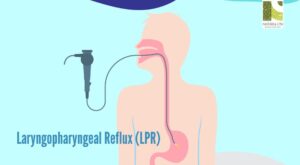Breathing Problems: Using a Nebulizer for Relief and Recovery

Breathing — a process we often take for granted — can become a daily struggle for those living with respiratory conditions such as asthma, COPD, bronchitis, or other lung disorders. For such individuals, nebulizers are more than just a machine — they’re a lifeline.
What Is a Nebulizer?
A nebulizer is a medical device that turns liquid medication into a fine mist or aerosol, which can be inhaled directly into the lungs. This method allows for rapid, effective delivery of medication, especially during episodes of acute breathing difficulty.
When Is a Nebulizer Used?
Nebulizers are commonly prescribed for:
- Asthma
- Chronic Obstructive Pulmonary Disease (COPD)
- Bronchitis
- Emphysema
- Pneumonia
- Cystic fibrosis
- Severe allergic reactions affecting the airway
- Post-viral infections like RSV or post-COVID lung conditions
How Does It Work?
Nebulizers work by using compressed air, oxygen, or ultrasonic power to break down medication into small aerosol particles. These particles are inhaled deeply into the lungs through a mouthpiece or face mask.
This bypasses the digestive system (unlike pills or syrups), delivering medication directly to the respiratory tract — often producing faster and more targeted results.
Common Medications Delivered via Nebulizer
Some of the most frequently nebulized medications include:
- Bronchodilators (e.g., Salbutamol/Albuterol): To open airways and relieve wheezing
- Corticosteroids (e.g., Budesonide): To reduce inflammation in the lungs
- Antibiotics (e.g., Tobramycin): For bacterial lung infections
- Hypertonic saline: To loosen mucus, especially in cystic fibrosis patients
Science Behind It: Why Nebulizers Are Effective
- A 2015 review in the journal “Respiratory Medicine” emphasized that nebulized therapy ensures higher deposition in the lower airways, improving bronchodilation and mucociliary clearance.
- According to the American Thoracic Society, nebulizers are particularly helpful for young children, elderly patients, or anyone who finds it difficult to use inhalers properly.
- A meta-analysis published in Chest (2019) noted that inhaled corticosteroids via nebulizer were significantly more effective in reducing exacerbation rates in moderate to severe COPD patients compared to oral medication.
Who Should Use a Nebulizer?
While inhalers are generally the first-line treatment for most respiratory conditions, nebulizers are recommended when:
- The patient cannot coordinate the use of inhalers (common in young children or elderly)
- The severity of symptoms demands continuous breathing of medication
- The patient is in a hospital or emergency setting
- Higher doses or combination medications need to be administered efficiently
Nebulizer vs Inhaler: Which is Better?
| Feature | Nebulizer | Inhaler (MDI/DPI) |
|---|---|---|
| Medication delivery | Mist via breathing | Spray or powder via inhalation |
| Ease of use | Easy for all age groups | Requires coordination |
| Onset of action | Slightly longer | Faster with proper technique |
| Portability | Less portable | Easily carried |
| Duration | 5–15 mins per use | 1–2 mins |
In summary: Nebulizers are more suited for long or severe attacks, while inhalers are preferred for portability and quick usage in mild to moderate conditions.
Precautions and Maintenanc
- Clean after each use: Rinse the mouthpiece/mask with sterile water.
- Weekly disinfection: Use vinegar or hydrogen peroxide solution for sterilization.
- Replace filters regularly.
- Never mix medications unless prescribed.
- Sit upright and breathe slowly through the mouth during the session.
Psychological Impact and Patient Comfort
Many patients report a sense of calm and control during nebulization, especially when breathlessness creates anxiety. According to a 2020 study in the Journal of Psychosomatic Research, patients with asthma and COPD often benefit psychologically from nebulizer routines due to the perceived support and focused breathing it encourages.
Is a Nebulizer Right for You?
Using a nebulizer can be a life-changing tool in the management of chronic or acute respiratory conditions. Whether used during flare-ups or as part of a daily regimen, nebulizers offer targeted therapy with proven benefits. However, always consult your physician before initiating or changing any treatment.
At nellikka.life, we advocate for empowered health choices and science-backed solutions. Whether you’re a caregiver, a parent, or someone battling lung issues, understanding your options like nebulizer therapy can help you breathe easier — quite literally.
Further Reading & References:
- American Lung Association – www.lung.org
- NIH: National Heart, Lung, and Blood Institute – www.nhlbi.nih.gov
- Respiratory Medicine Journal
- Chest Journal





